Ah yes, narcissists! What a fun bunch of people who abuse you and ruin your relationships and life. While narcissists are horrible to be with as they are, it can be even more difficult to be around an exhibitionist narcissist. But what is an exhibitionist narcissist?
Let’s take a deep dive and learn how to spot one and protect yourself from their dastardly mind games.
What is an exhibitionist narcissist?
Narcissism is a personality trait and it can manifest in different ways such as the vulnerable narcissist, the closet narcissist, the toxic narcissist, the exhibitionist narcissist and many others. So exactly what is an exhibitionist narcissist?
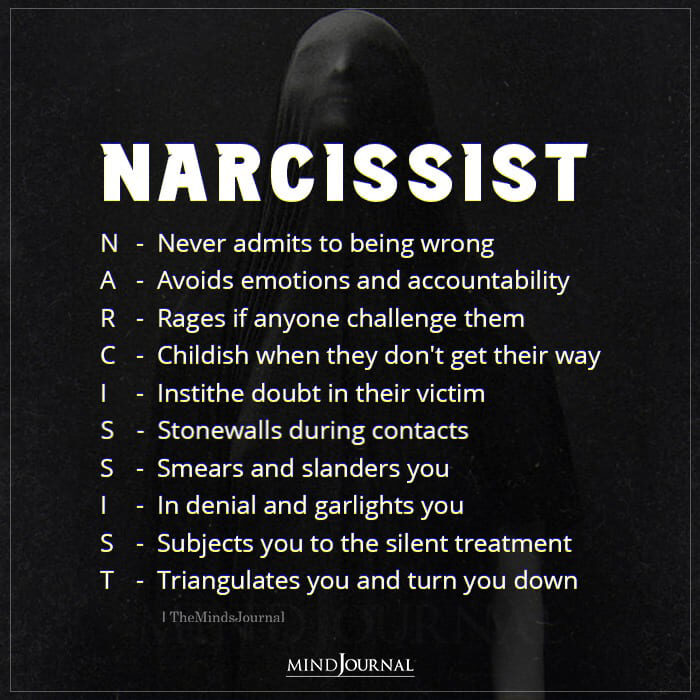
Exhibitionistic narcissism definition: Exhibitionist narcissists are people with narcissistic traits who constantly crave attention, affection, admiration and praise.
They can make anything and everything about themselves and be very charismatic and humorous about it. However, as they are extremely desperate for attention, validation & adoration, they can take a lot of effort to attain it.
While it is believed that people with narcissistic traits typically lack empathy, individuals with exhibitionist narcissism do understand and realize what you are going through but they simply don’t care.
Although they may lack affective empathy (the ability to share and relate to other’s emotions), they still have cognitive empathy which enables them to understand your state of mind.
Related: The Anatomy of Narcissism
What are exhibitionist narcissists like?
Exhibitionist narcissists believe they are better than most people and think that their behavior is “normal”. They are unaware of the fact that most people are not like them and that their words, reactions, actions and behaviors are toxic and abusive. People with exhibitionist narcissistic personality disorder have –
- An inflated ego
- A grandiose self-image
- A persistent need for attention, admiration and validation from others
- Lack of awareness
- Feelings of emptiness
- Feelings of insecurity
- A strong sense of entitlement
Individuals with exhibitionistic narcissistic disorder tend to have a superiority complex, are extremely confident, and do not hesitate to criticize and devalue others.
They dominate all conversations and quickly change the topic to themselves regardless of the mood or situation. They love talking about themselves, exaggerating their accomplishments and giving “advice” to others.
But most of all, they are desperate for attention. If you are a little aware, you can spot their attention-seeking behavior from a mile away. They will act weird, dress provocatively to seduce you, act impulsively, show off their physical features & wealth, and constantly talk about how great they are… all to get your attention.
But there’s more to the question: “What is an exhibitionist narcissist like?” Exhibitionist narcissists thrive on the attention they receive and may even violate social norms or behave inappropriately to get the attention they need.
They are often charming and charismatic, making it easy for them to attract others. However, they don’t really care about others as their primary concern is their own needs and desires.
They are often oblivious to the needs and feelings of others and may use others to meet their own needs without any regard for the well-being of others.
They will violate your boundaries and will not respect your opinions, emotions, needs, desires or accomplishments, unless it serves their purpose. They often exploit others to achieve their own goals. They may also have a distorted sense of self, poor self-esteem, a lack of accountability, and difficulty accepting criticism.
Related: 7 Signs Your Mother Is An Exhibitionist Narcissist
13 Traits of an exhibitionist narcissist
Now that we have some idea about “What is an exhibitionist narcissist?”, let’s have a look at some of the most common and defining traits that most individuals with exhibitionist narcissistic personality disorder possess –
1. Attention-seeking behavior
Exhibitionist narcissists crave attention and may engage in attention-seeking behavior to get what they need. They are desperate for praise and admiration from others. And hence, they may dress provocatively, speak loudly, or act in a way that draws attention to themselves.
They may engage in risky or impulsive behaviors, such as substance abuse or reckless driving, to get a thrill or to impress others. They may also seek attention through their accomplishments or wealth.
2. Grandiosity
Exhibitionist narcissists have an inflated sense of self-importance and believe that they are special, unique and superior to others. They may exaggerate their achievements, talents, or abilities to gain attention and admiration. They expect others to recognize and praise them for being special.
They may also believe that they are entitled to special treatment and privileges, and may become angry or resentful if they feel they are not being given the attention or respect they think they deserve.
3. Lack of empathy
Exhibitionist narcissists lack empathy and are often oblivious to the needs and feelings of others. They may have difficulty empathizing with others, and may lack the ability to understand or care about the feelings of others.
They may disregard the needs or feelings of others and prioritize meeting their own needs, desires and interests. They may also have a callous attitude towards others and feel little guilt or remorse for their actions.

4. Manipulation
Exhibitionist narcissists may use manipulation to get what they want. They may use charm, flattery, play mind games, use emotional blackmail and other tactics to influence & control others or to gain their trust. They may also lie or deceive others to get what they want or to avoid responsibility for their actions.
5. Lack of boundaries
Exhibitionist narcissists may have poor boundaries and may have difficulty respecting the boundaries of others. They will not hesitate for a second before invading your personal space and be intrusive or overly familiar, making you feel uncomfortable or violated.
They may also ignore social norms or rules, or violate the rights of others. They tend to expect others to cater to their needs and desires without regard for their own needs or feelings.
6. Lack of self-awareness
When trying to learn about “What is an exhibitionist narcissist?”, we need to address the most crucial aspect of exhibitionist narcissism – a distinct lack of self-awareness.
One of the key features of narcissism is a lack of empathy, which can lead to a lack of self-awareness. Narcissists may be so focused on themselves and their own needs and desires that they fail to recognize how their behavior affects others.
Hence, exhibitionist narcissists may not recognize the impact their behavior has on others. They may be unable to see their own flaws or shortcomings and may deny or minimize any negative feedback or criticism they receive.
However, not all narcissists lack self-awareness. Some may be aware of their behavior and its impact on others, but choose to ignore or downplay it.
Related: 7 Common Myths About Narcissistic Personality Disorder
7. Arrogance
As they may have a sense of superiority, individuals with exhibitionistic narcissistic disorder may look down on others they deem inferior.
They may belittle or criticize others to make themselves feel better or to assert their dominance. They may also refuse to admit fault or take responsibility for their behaviors and actions, blaming others instead.
8. Envy
An exhibitionist narcissist may become jealous or envious of others who they perceive as having relatively more attention, admiration, or success.
They may feel threatened by others who they see as competition and may try to undermine or sabotage them to regain their position of superiority.

9. Sense of entitlement
Exhibitionist narcissists believe that they are entitled to special treatment and privileges. They may feel entitled to admiration or attention, or believe they are entitled to take advantage of others to get what they want.
They may believe that the rules do not apply to them and that they are above the law. In fact, they may become angry or resentful when their expectations are not met.
10. Exploitation of others
This type of narcissist may exploit others to achieve their own goals and personal gain. They may use, manipulate, lie, or deceive others to get what they want without any concern for the well-being of others. They may also use others for emotional support, financial gain, or to boost their own self-esteem.
11. Lack of accountability
Exhibitionist narcissists often lack accountability for their actions and may shift blame onto others.
They may deny or refuse to take responsibility for their actions, mistakes or shortcomings and may refuse to apologize or make amends, even when it is clear that they are in the wrong. They can blatantly blame others for their failures and deny any wrongdoing.
12. Inability to accept criticism
People with such narcissistic traits are unable to accept criticism and may react defensively or aggressively when criticized. As they have a fragile sense of self-esteem, they can easily become hostile when faced with negative feedback or criticism.
They may see any criticism as an attack on their ego and feel belittled, even when the criticism is constructive. They may become dismissive of the person offering the criticism.
13. Impulsivity
Exhibitionist narcissists may act impulsively without considering the consequences of their actions.
They may act on their desires without properly thinking it through and may engage in risky behaviors or make impulsive decisions that are self-serving and can harm themselves or others.
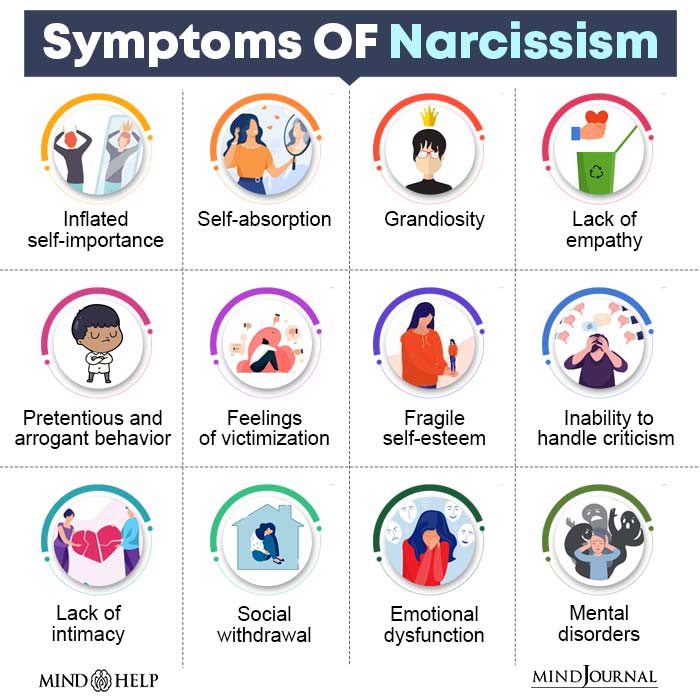
Exhibitionist narcissists are the classic stereotype
What do you think of when you hear the word “narcissist”? Someone who is obsessed with themselves? Someone who doesn’t care about others? Someone who is constantly posting new photos on social media to get more of those “Likes”? Well, that’s your typical exhibitionist narcissist.
So what is an exhibitionist narcissist? Well, they fit the bill when it comes to the description of Narcissistic personality disorder (NPD) as stated in the Diagnostic and Statistical Manual of Mental Disorders (DSM). Exhibitionist narcissism is the classical form of this personality disorder.
They are like a toxic version of children who are constantly thinking about how to get someone’s attention as they have a strong “please look at me” attitude. Similar to children, these narcissists don’t consider or care about what the other person may be experiencing. They only care about the attention they are not receiving at the moment.
Related: The Difference Between Traditional and Hidden Narcissism
However, as children grow and mature, they become empathetic, kind and compassionate. But exhibitionist narcissists don’t. They are never satisfied with the attention they get.
Being the stereotypical version of a narcissist, they think they are special and believe they deserve love, admiration, attention and success without the need to put any actual effort into it. They believe they are awesome, more powerful, smarter and more attractive than others.
In fact, they believe they are even better than their own loved ones, spouse/partner, friends and family members.
While they may emotionally struggle with insecurities, they never express it before others.
Instead, they humiliate, devalue and put others down to hide their fears and insecurities which can make them seem uncaring, cruel and rude.
Are exhibitionist narcissists toxic?
Although exhibitionist narcissists are not necessarily abusive or evil, they can be highly self-obsessed, toxic and downright annoying.
They are charming and overbearing.
They are very arrogant and confident.
They NEED to be the center of attention.
They have black and white thinking & always think in absolutes.
They can’t accept criticism, even if it’s productive.
They make everything about themselves.
They like to manipulate people and situations to get what they want.
They pretend to be perfect – perfect partner, perfect friend, perfect employee etc.
But behind all of these, they hide their fragile sense of self. When challenged or protested, a person with exhibitionist narcissism can become defensive and hostile to protect their feeble ego.
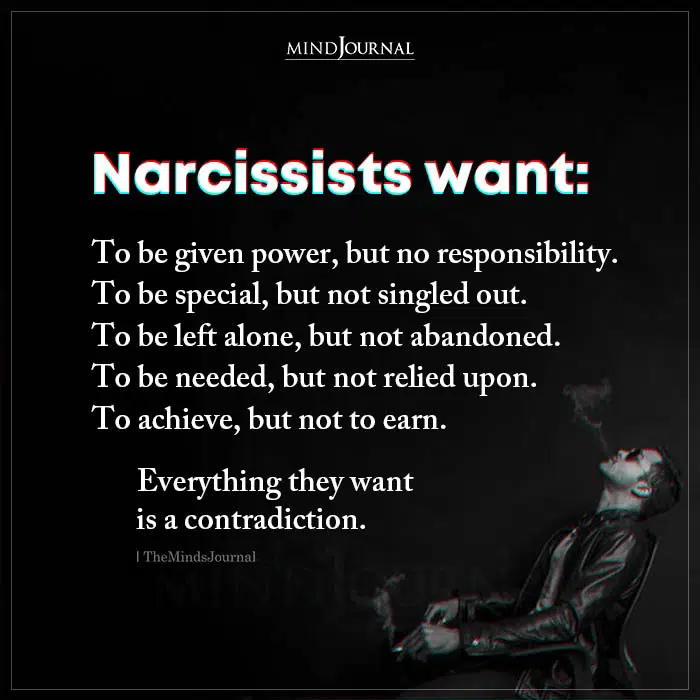
How to identify an exhibitionist narcissist
While we may have a clear understanding about “what is an exhibitionist narcissist?”, we still need to figure out how to spot one in our lives. Here’s how you can spot one in the wild:
1. They are desperate to be the center of attention
An exhibitionist narcissist is desperate for attention, validation and admiration and they can go to any length to get it. They may exhibit behaviors that attract your attention such as:
- Talking loudly
- Showing off their appearance
- Flaunting their wealth
- Making grandiose claims
Regardless of who may be speaking or what the topic of discussion is, they interrupt others and start talking about themselves.
They can easily change the topic of an ongoing conversation to make it all about them. They may also seek out positions of power or influence in order to become the center of attention in a social setting.
2. They become easily offended
If you find the courage to ever criticize an exhibitionist narcissist, then you should be prepared to face their wrath. They have fragile egos and may become defensive or hostile if they feel criticized or challenged.
They may lash out at others or try to discredit them to protect their own self-image. They may also see themselves as victims of others’ unfair treatment or jealousy.
Related: What Is Closet Narcissistic Personality Disorder?
3. They believe they are special
Narcissism and having an inflated sense of self-importance go hand in hand. Exhibitionist narcissists believe they are unique and important and so they deserve special treatment.
They may overestimate their abilities, accomplishments, or social status. They may also expect others to treat them with deference and admiration, regardless of their behavior or actions.
4. They will violate your boundaries
Exhibitionist narcissists are intrusive and will repeatedly intrude your personal space, both physical and mental. As they constantly seek attention and admiration, they do not consider others’ needs as important.
They will shamelessly enter your life and space whenever they feel like it without permission.
For instance, if you live with such a narcissistic person, then they may enter your room without knocking, making you feel uncomfortable and anxious. They may also become extremely involved in your personal life, try to control you, make decisions for you and take credit for your accomplishments.
5. They don’t care about your feelings
Being low on emotional empathy, they are unable to feel your pain and relate to your emotions. This lack of awareness about self and others makes them uncaring and disinterested in the emotions of others.
While they may have cognitive empathy and fully understand how their behavior affects you, they simply won’t care.
To exhibitionist narcissists, only their emotions matter. Yours don’t. They have a hard time putting themselves in other people’s shoes. So they disregard other people’s feelings or needs and prioritize their own.
6. They devalue others to control them
“Why do you have to so stupid all the time? Can’t you do anything right?”
Sounds familiar? Exhibitionist narcissists will verbally abuse others to control and dominate them.
If you manage to somehow offend them or refuse to meet their wishes, they will instantly snap and will not hold back to criticize, humiliate, belittle and devalue you.
As they feel entitled about everything, they will not hesitate to ruin your life if you somehow challenge or disagree with them. They will play unfair and use the dirtiest tricks in the book to put you down, if you displease them.
Related: What You Should Know About Narcissists, NPD And Their Partners
7. They are obsessed with their looks
Narcissists being narcissists are super obsessed with their appearance. They tend to spend a lot of time and money on their appearance.
They may dress in flashy or provocative clothing, wear excessive makeup, or undergo cosmetic procedures. They may also be obsessed with excessive exercise or dieting to make sure they look visually appealing and attractive.
8. They love to exploit others
Manipulating and exploiting people around them is their favorite pastime. When learning about “what is an exhibitionist narcissist?” and wondering how to identify them, spotting their exploitative habits is like a no brainer.
They take advantage of others to get what they want and they manipulate or use people for their own gain, without regard for their feelings or well-being. They may also engage in behaviors that are harmful or destructive to others, without feeling remorse or guilt.
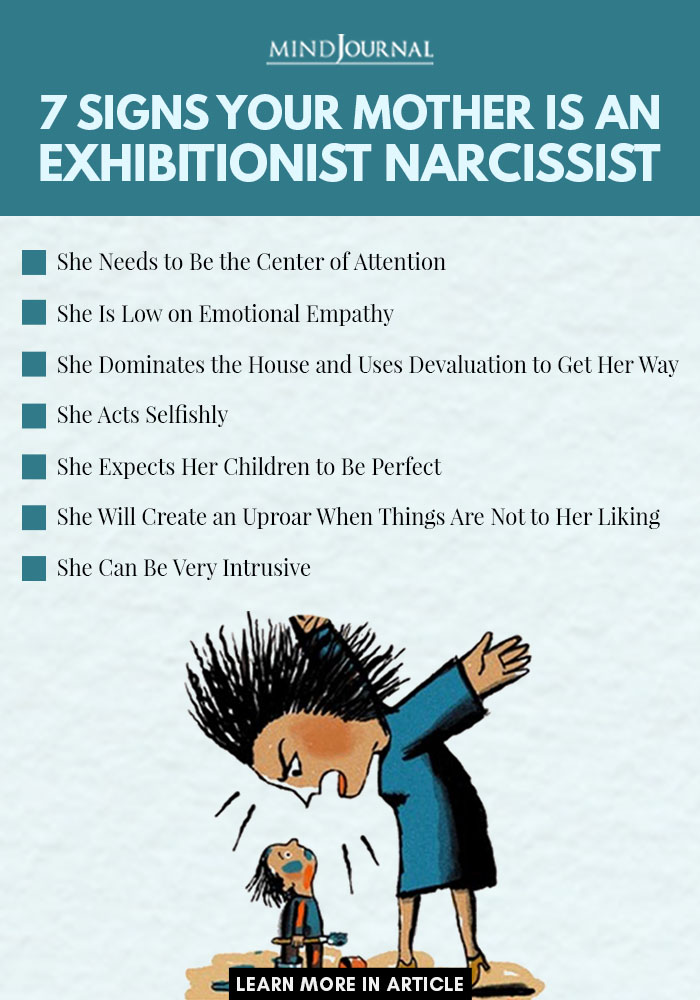
9. They are extremely selfish
To an exhibitionist narcissistic person, their needs and desires matter more than yours. If you are married to such a narcissist, then their work and hobbies will take more priority than your relationship or household chores. They are NOT concerned about how it may affect you or your life as long as they get to do what they want.
They assume that they are entitled to do whatever they want and others in the family will deal with the responsibilities. They are extremely self-centered and not concerned about the needs of others.
10. They brag a lot about themselves
Exhibitionist narcissists may boast about their achievements or abilities, often exaggerating their accomplishments to make themselves seem more impressive. They may also name-drop or talk about their connections to famous or influential people.
They may flaunt their wealth or status by wearing expensive clothing, driving luxury cars, or living in lavish homes. They may also seek out social events or clubs that cater to the wealthy or elite.
However, not all narcissists exhibit all of these traits, and some people may have narcissistic tendencies without meeting the full criteria for narcissistic personality disorder.
In case you do notice these traits in someone you know, it may be worth considering the possibility that they are an exhibitionist narcissist, and taking steps to protect yourself from their potentially harmful behavior.
6 ways to deal with an exhibitionist narcissist
Wondering how you can positively interact with an exhibitionist narcissist without letting their toxicity affect you? Well, here are some strategies to deal with them while dodging all that drama –
1. Set clear boundaries
If you want to keep their toxic narcissism away from your life for good, then establish strong boundaries and be assertive about maintaining them. The exhibitionist narcissist will constantly try their best to push your limits. So be clear about what is and is not acceptable behavior, and stick to your boundaries.
2. Do not be an enabler
An enabler is someone who empowers, encourages or allows a narcissist to engage in toxic behavior and continue their destructive behavioral patterns. Enabling includes making excuses for their behavior, ignoring the consequences of their actions, providing financial support or taking responsibility for their problems.
If you want to smartly deal with an exhibitionist narcissist, then do not give in to their demands for attention or validation. This can reinforce their behavior and make it more challenging to change.
Related: Dehumanization: A Narcissist’s Ultimate Manipulation Tool
3. Avoid their demand for attention
If you live with a person with exhibitionist narcissism, then you will be haunted by their constant and incessant need for attention.
The best way to deal with this is to simply ignore their attention-seeking behavior. Do not engage or give them the attention they seek, as this can reinforce their behavior.
4. Avoid confrontation
Narcissists tend to become defensive when challenged or confronted, so avoid confronting or arguing with them directly. You can never win an argument with a toxic narcissist and remain sane. So it is best to communicate your concerns calmly and assertively.
5. Maintain records
Exhibitionist narcissists are masters of gaslighting, a psychological manipulation strategy that will make you question your own sanity. So make sure to keep a record of their behavior, including dates, times, and specific actions.
Make video or audio recordings, note down details and take pictures for evidence. Not only can this serve as evidence when you start doubting yourself, it can also be helpful if you need to seek legal or professional assistance.
6. Seek support
It can be helpful to seek support from a therapist or counselor who can help you develop coping strategies and establish healthy boundaries.
Mental health professionals can not only help you develop healthy coping tactics, they can also help you deal with the negative emotions, such as stress and anxiety, that come from living with a narcissist.
You may also seek help and support from trusted loved ones as they may provide helpful guidance and help you gain a different perspective about the situation. Remember that dealing with an exhibitionist narcissist can be challenging, and it’s essential to take care of yourself. Don’t hesitate to seek help if you need it.
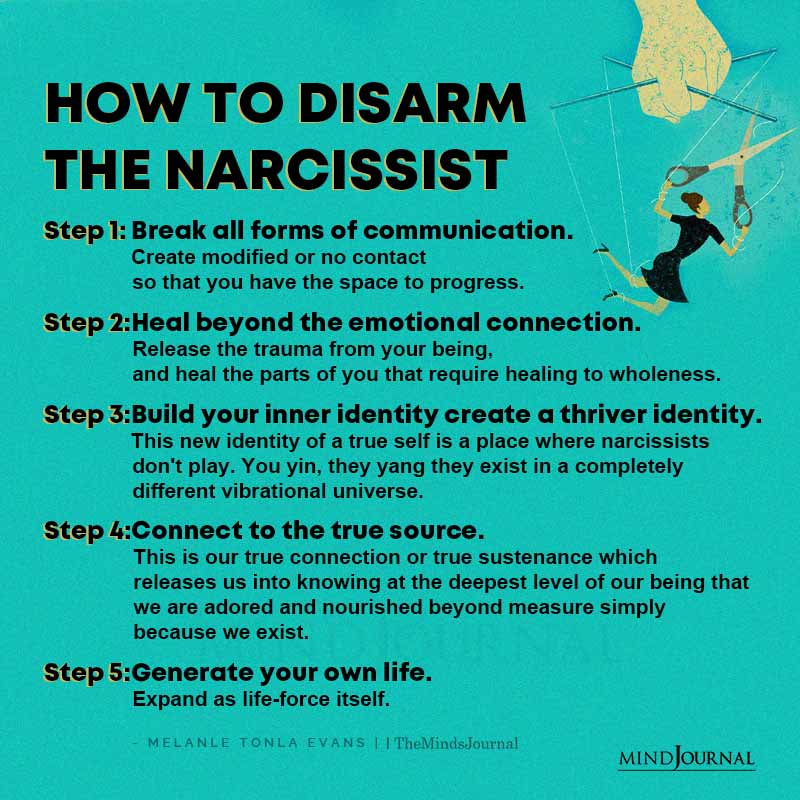
Protect yourself from exhibitionist narcissists
So what is an exhibitionist narcissist? They are individuals who have a deep-seated need for attention and admiration and their desperation can lead to behavior that is disruptive, attention-seeking, manipulative and exploitation.
Dealing with an exhibitionist narcissist can be challenging, but setting clear boundaries, seeking support, and avoiding enabling behavior are important steps to take.
Related: Ninja Narcissists: How They Torment You With Their Sneak Attacks
By identifying the symptoms of exhibitionist narcissism and taking necessary steps to protect yourself, you can reduce the impact of their behavior on your life.
Frequently Asked Questions:
What is the most extreme form of narcissism?
Malignant Narcissism is believed to be the most severe form of narcissism. It is a personality disorder characterized by a combination of narcissistic, antisocial, and paranoid traits, and severe empathy deficits.
What is the closet narcissistic personality disorder?
Closet narcissism, popularly known as covert narcissism, is a personality disorder characterized by a vulnerable, hypersensitive, and defensive form of narcissism, often expressed through passive-aggressive behavior.
What is a somatic narcissist?
Somatic narcissism is a personality disorder characterized by a preoccupation with physical appearance and the use of sexual conquests to gain attention and validation.











Leave a Reply
You must be logged in to post a comment.